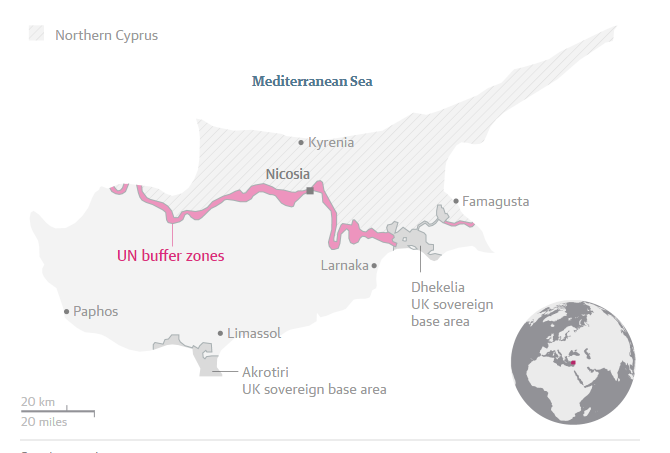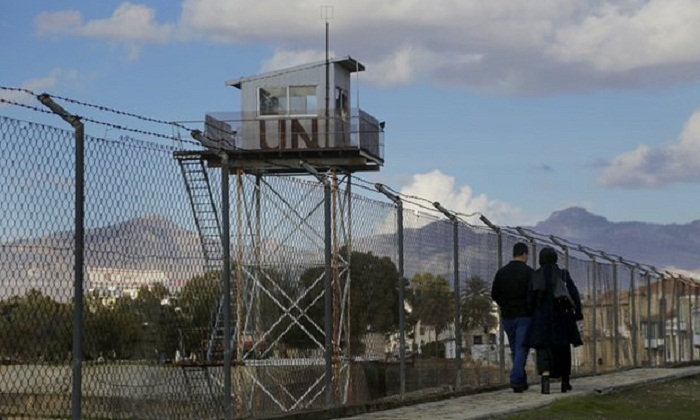He said there was still work to do amid growing signs of slippage in the timetables that the leaders of Cyprus’s Greek and Turkish communities had originally agreed to keep.
Delegates instead spoke of an “open-ended” process in which the clock would stop if necessary. One said: “We recognise that issues that have taken years to address cannot be solved in a day. Negotiations may well extend into the weekend. We may adopt that age-old conference policy of stopping the clock.”
Others admitted that, because of the slow pace of progress, they had not booked return flights out of Geneva.
As the latest push to reunite the island reached a critical juncture on the third day of talks, Nicos Anastasiades, who heads the island’s internationally recognised Greek-controlled south, and Mustafa Akıncı, who leads Turkish Cypriots in the north, moved to the make-or-break issue of territorial tradeoffs in an envisioned two-state federation.

In a country where more than 200,000 people lost their homes, the territory and boundaries that both states would have is crucial to a solution. For the first time, away from Cyprus in the less psychologically charged atmosphere of Switzerland, the two leaders poured over maps and tackled the thorny question of land swaps and percentages on the island.
“We have dealt with some of the most difficult issues,” said Eide. “We have touched upon almost all of them, we have solved many of them and we are close to resolving some other issues.”
He described the discussions as “the moment of truth”. If the contours of a territorial plan are agreed, a deal could be reached that would be put to referendum later this year.
For Anastasiades, this is by far the most delicate stage of the negotiations, which are highly emotive among his own constituency.
Although Cypriots from both sides of the ethnic divide rallied in support of a solution on Tuesday – braving icy temperatures to sing in the name of peace near the UN-patrolled buffer zone that divides the capital, Nicosia – the leader also faces considerable opposition from a cohort of rejectionist politicians. Six of the eight parties represented in Cyprus’s parliament oppose a settlement, mostly on the grounds that no deal would ever properly compensate those who lost property and homes when Turkey invaded in 1974.
Anastasiades, who sees this as the last chance to reunite Cyprus, has the daunting task of convincing the Turks to surrender enough territory to allow 90,000 refugees to return to their homes.
Under Akıncı, the Turkish Cypriots have signalled they would be prepared to give up territory under their control but only if granted more power-sharing rights, including a rotating presidency. That is anathema to Greek nationalists, who argue that as the majority population they should exercise more power.
Eide said competing maps presented by the leaders were expected to be seen and studied by only a handful of aides in the respective negotiating teams before being stored in a UN vault, in acknowledgment of the sensitive diplomatic task ahead.
The framework of an agreement could be built, he said, if the foreign ministers of Cyprus’s three guarantor powers agreed to post-unification security arrangements during Thursday’s meeting.
Turkey has maintained an estimated 40,000 troops on the island since 1974. A far smaller contingent has also been stationed on the island by Athens, which now says the guarantor system should be dismantled – in sharp contrast to Ankara, which insists troops must stay.
The European commission president, Jean-Claude Juncker, said: “I really think, without over-dramatising what is happening in Geneva, that this is the very last chance to see the island being recomposed in a normal way.”
/TheGuardian/















































